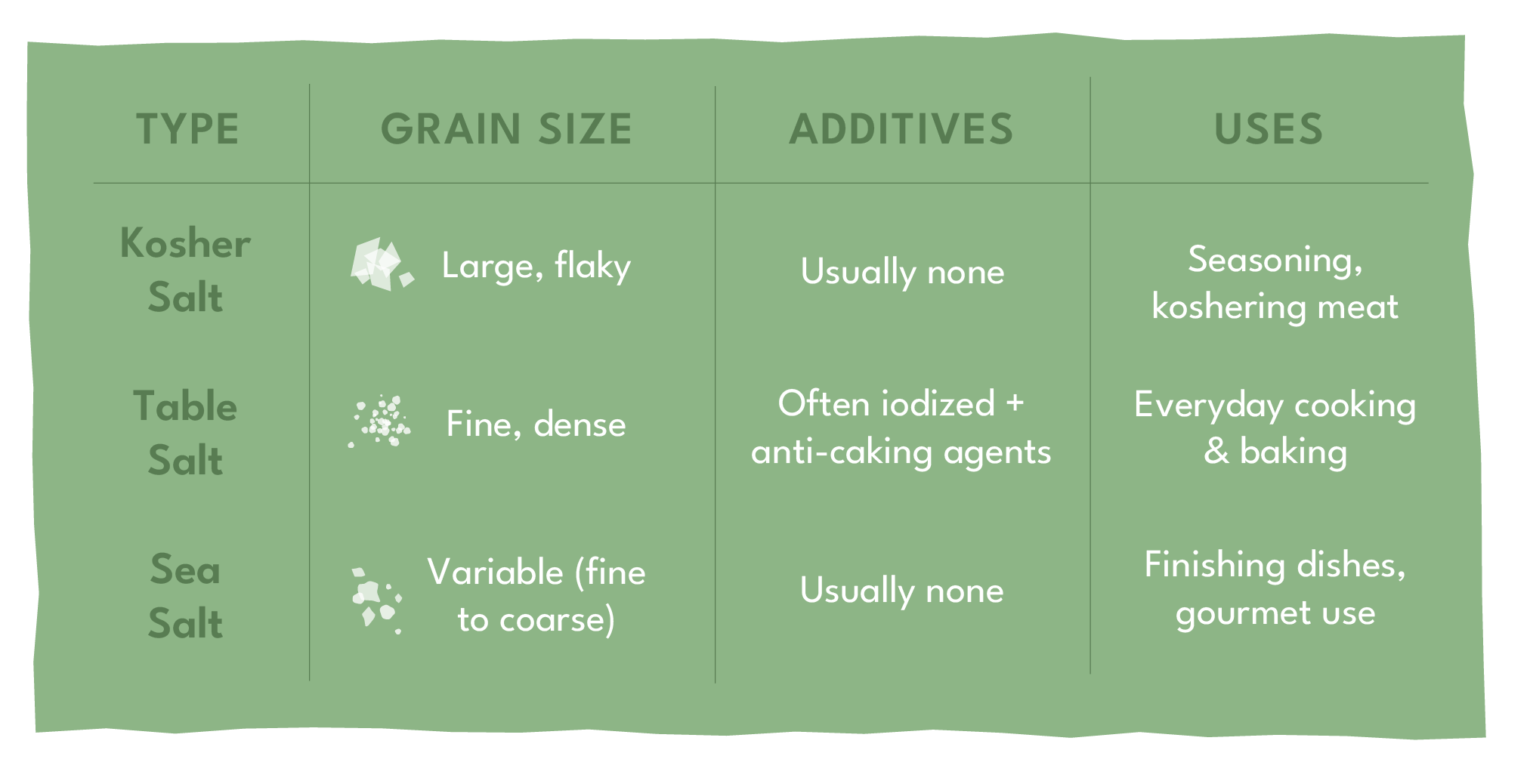Kosher 101: What Is Kosher About Kosher Salt?

Welcome to the first installment of our Kosher 101 blog series, where we break down the basics of kosher food in plain, easy-to-understand language. Whether you're brand new to kosher or just looking to brush up on the details, we’re here to help you make sense of it all.
We’re kicking things off with a spice cabinet staple, and one of our favorite ingredients with “kosher” in its name: Kosher Salt.
What Is Kosher Salt?
Despite its name, Kosher Salt isn’t inherently more “kosher” than other salts. The term actually refers to its use in the koshering process, not its certification. Kosher salt is a coarse, flaky salt traditionally used to draw blood out of meat as part of the kashering process, a requirement in Jewish dietary laws.
So when people ask, “What is kosher about kosher salt?” The answer is: It’s about function, not faith.
Kosher salt itself isn’t a product that is inherently kosher. So if you’re looking for salt that’s certified kosher for consumption, remember to check for a kosher certification symbol on the packaging.
What Makes Kosher Salt Different?
There are a few key differences that make kosher salt stand out in the kitchen:
- Texture: Kosher salt has a larger, flakier grain than regular table salt. This makes it easier to pinch and sprinkle, giving cooks more control.
- Additive-Free: Most kosher salt is free of iodine and anti-caking agents, which can alter taste and texture.
- Flavor: Because of its clean flavor and quick-dissolving nature, kosher salt is a favorite among chefs and home cooks alike.
Kosher Salt vs. Sea Salt: Are They the Same?
Not quite. Kosher salt and sea salt both lack additives and come in flaky or coarse forms, but their origin and shape differ:
- Sea salt is evaporated from seawater and can vary in mineral content and taste based on where it’s harvested.
- Kosher salt is usually mined from underground salt deposits and processed to have uniform, flat crystals that make it ideal for seasoning and koshering.
While both are good clean-tasting salts, kosher salt is typically cheaper and easier to find in larger boxes, making it the go-to choice for bulk cooking.
What Is the Difference Between Kosher Salt and Regular Salt?
Here’s a quick breakdown of how kosher salt compares to the two most common types of salt:

The main takeaway? Kosher salt and table salt are not always interchangeable in recipes. Because kosher salt is less dense, a tablespoon of kosher salt contains less sodium than a tablespoon of table salt. That’s why it’s important to use the type of salt your recipe calls for or adjust measurements accordingly.
So what did we learn?
Nu, what is kosher salt?
It’s a clean, coarse salt that’s long been used in the Jewish tradition to prepare meat according to kosher dietary laws. It’s also a kitchen MVP, loved by chefs for its taste, texture, and ease of use.
Whether you're kosher or not, understanding the difference between kosher salt vs. sea salt, or kosher salt vs. table salt, can help you season with more confidence and clarity.
Stay tuned for more Kosher 101 posts as we dig deeper into the traditions, techniques, and tasty details behind kosher cooking.
© 2025 by Kosher Eats. Website design and development by 1744 Marketing.
Accessibility | Terms & Conditions | Privacy Policy


.png)

